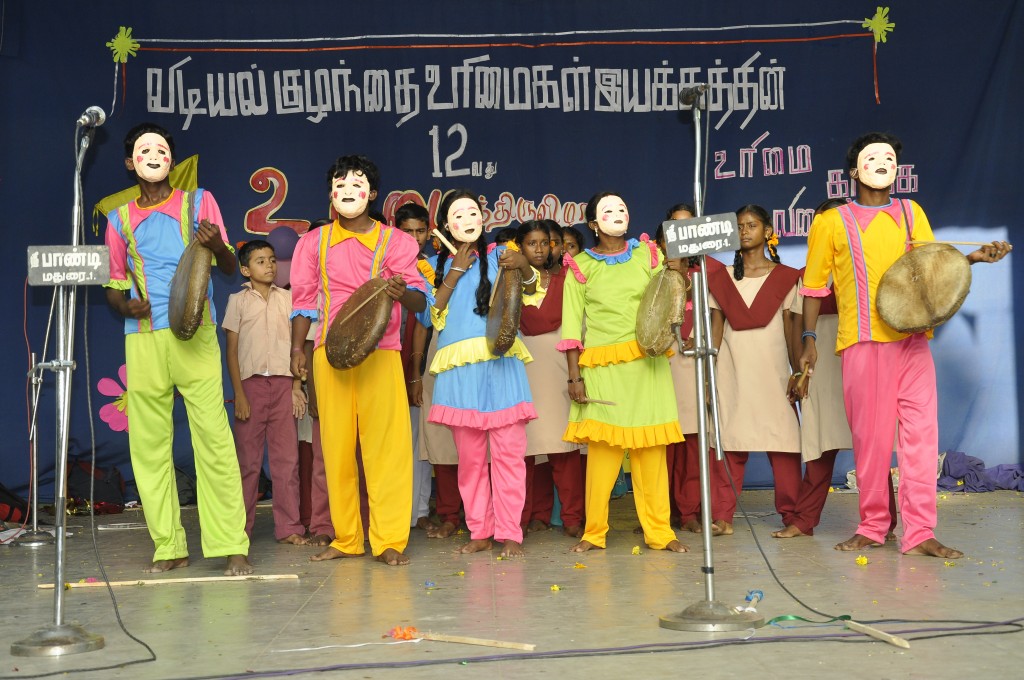VCRM FOUR FOLD ACTIVITIES
FOUR FOLD ACTIVITIES
1. Activities for Fun and Fellowship
One-Day Picnics at Vidiyal
Childhood should be a time of joy and exploration, but many children, especially those from street and slum backgrounds, lack such opportunities. Vidiyal bridges this gap by organizing quarterly picnics and celebrations, taking children to nature sites, historical landmarks, and trade houses. This program aims to give children 48 outings before they turn 18, fostering friendship, humanness, and a positive view of life.
2. Activities for Self-Development
Training Programmes at Vidiyal
Vidiyal offers ongoing, participatory training from age 5 to 18, focusing on cognitive, emotional, and physical development. These programs build confidence and skills through activity-based methods, helping children move to the next level at each stage.The training modules are designed with objectives focused on enhancing the child’s knowledge, skills, and attitudes.
Effective Handling of Adolescence
Adolescence brings physical and psychological changes, often causing confusion about sexuality. Vidiyal addresses these challenges by offering age-appropriate, scientific knowledge on reproductive health, sexual safety, and self-protection. This empowers children to navigate adolescence with confidence and awareness.
Sexual Health Intervention Programme (SHIP)
Since 2011, Vidiyal has implemented SHIP, adapted from a Bangalore-based organization, to address the vulnerabilities of street and slum children regarding sexual health and abuse. Starting at age 12, children learn about physical development, peer pressure, safe sexual practices, and HIV/AIDS prevention, while fostering open communication and peer support.
3. Activities to Serve Others
Service Projects by Children’s Forums
Vidiyal fosters the value of service by encouraging children to engage in various outreach activities. Each year, the children’s forums support a ‘care home’ by organizing visits, campus clean-ups, cultural shows, and donations for those in need. On the ‘Day of Giving,’ children raise funds through fun stalls and eateries at the Jolly Camp, which are then donated to care homes to help meet their needs.
4. Activities for the Promotion of Child Rights
Vidiyal’s Child Rights Movement promotes awareness through various campaigns, including theatre performances, rallies, opinion polls, and media advocacy. These efforts educate society on the importance of child rights, ensuring that children’s voices are heard and valued.

